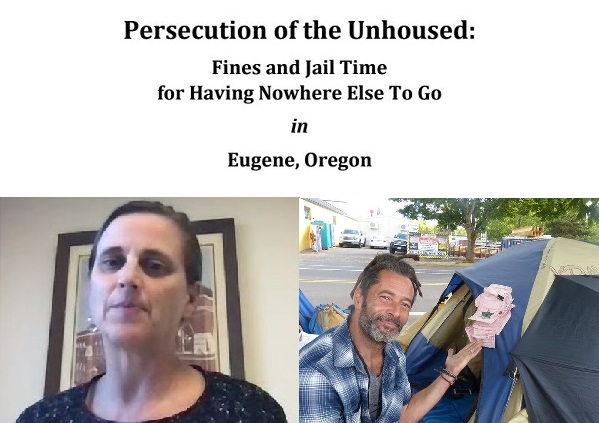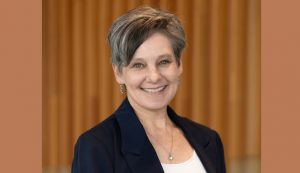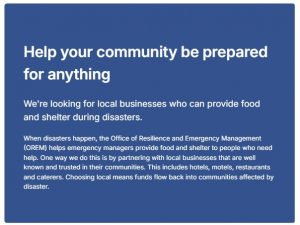Advocates for homeless suggest alternatives to proposed parking rules
10 min read
A Human Rights Commission work group discussed alternatives to bigger parking fines and rules making it easier to tow vehicles people are using for survival housing. At the Homelessness and Poverty Work Group April 2:
Councilor Lyndsie Leech: What I did on March 11 was push this to another work session specific to this ordinance, so the work session will be on April 17. So we can start to prepare for that.
I’ve been meeting with city manager and city staff to try to get our next steps aligned, figure out how we’re going to approach the next meeting. We parceled out the ordinance into two pieces: one piece that they are calling the business of parking—updating the metered parking downtown and in the University District—and then the ‘persistent violators’ piece.
[00:00:57] What I’m hoping for the April 17 (work session) is to say, ‘Okay, here’s the (city) code pieces of this, but can we look at more programmatic pieces and cultural pieces of how we’re responding?’
[00:01:10] One thing that impressed on me in the meeting today that I didn’t realize from the get-go was, they’re saying instead of making the police or EPD be the only ones that can respond to this issue of draining graywater, the housing service officers and neighborhood service officers would then be enabled to handle that situation. And culturally, those groups are able to help a little bit more than just be enforcement responding in citation-giving. They’re able to connect to resources and stuff. And so that piece to me was really important.
[00:01:51] Some of my questions were around RVs and the ability to help people repair their RVs rather than get them towed or get a citation. And so the idea of having kind of an RV repair fund or partnering with an organization that does that work to help people be able to not be in violation of some of the code—and also getting additional places for people to legally park.
[00:02:24] Apparently in the past year there’s been about 50 cases and 43 of those got warnings that would have been under this code and seven of them got citations. If we’re only giving seven citations, how would this ordinance meet our goals? And the answer was that sometimes people need a little bit of extra incentive to do the things that we want them to do. But for me, this idea of having only seven citations, I don’t think this is the tool.
[00:03:03] Blake Burrell (Homelessness and Poverty Work Group): I think this differentiation and understanding the distinction between individuals residing in vehicles, individuals residing in RVs—being more specific on this affords more space to focus on the ways to best serve individuals who are residing in those shelters and in those vehicles.
- We have our safe parking program was a Lane County funded program that allowed folks to park overnight. They had to leave during the day.
- We have the overnight parking program, which is dispersed-site locations in a more permanent setting on private businesses and church parking lots and its partnerships with hosts where individuals stay in a longer term.
- 310 Garfield is one of those large-scale, more congregate vehicular parking programs operated on Garfield Street.
[00:03:56] Those are three models that are really active within the community. And then we’ve discussed some things like our ‘sanctuary streets’ proposal, which would be actually identifying street locations where individuals could park and get special permits. And that would be outside of the scope of a more permanent fixture. It would be identifying those places where vehicles could camp in a more temporary basis when they’re seeking respite.
[00:04:24] Then I know—Councilor Leech, your reference—a little bit about the RV repair component. Hope on Wheels is an organization—they’re fiscally sponsored by Carry It Forward located on Highway 99 —that actually does vehicle RV repair and provides RVs to folks. And that would be with Kris McAlister and David Strahan.
[00:04:44] Cynthia, it sounds like you’re thinking about 24/7 parking opportunities.
[00:04:51] Cynthia Cannon Poindexter (Homelessness and Poverty Work Group): When we realize that people are living in their cars, their cars are their houses, I think we should not just focus on moving them all around and making them go from place to place, but to acknowledge that this is home and that we need to support that.
[00:05:14] I really appreciated the way, Blake, that you described the consequences of losing your vehicle when it’s impounded because you didn’t know what to do. And I’m just wondering if we have a chance to recommend that that not be in the proposal. It’s so punitive and dysfunctional. Is there anything we can do about that?
[00:05:43] Blake Burrell (Homelessness and Poverty Work Group): Yeah, absolutely. That’s well within our scope. I’ll make a note of that.
[00:05:49] So maybe as we explore those models, I think that graywater component is really important. If you want a more permanent location, some sort of mechanism for safe disposal of graywater is probably pretty important for that model. We’re only hearing there’s a couple locations in the city, then that might be outreach materials that we’re providing to folks that are residing in vehicles so that they actually know where safe disposal can occur.
[00:06:13] Richard, some thoughts here?
[00:06:17] Richard Self (Homelessness and Poverty Work Group): Without using the Shelter Finder as a relocation tool, in fact, relocating anyone at any time that’s unhoused without using the provider dashboard is in violation of Martin vs. Boise and other statutes. You can’t just force somebody out on the streets with nowhere to go, taking their only home or otherwise, and expect that that is legal.
[00:06:48] And this is what I have a problem with. This is going on right now as we speak. For now, a month over near the Seneca train tracks and it just keeps happening and there’s no one in law enforcement at all using the Shelter Finder when they were one of the first ones to ask us to come up with it at both Coordinated Entry and LEAGUE (Lived Experience Advisory Group for Unhoused Engagement), so there needs to be some kind of accountability tool to incentivize those in law enforcement to follow the law.
[00:07:25] Blake Burrell (Homelessness and Poverty Work Group): Yeah, thanks for that, Richard. When you’re engaging with someone residing within an RV, I think that it makes a lot of sense to utilize that tool. It’s readily available and I know many providers in the sheltering and outreach ecosystem are utilizing it. So that’s great Richard. And Jackie, I see your hand.
[00:07:42] John Q: The newest member of the Human Rights Commission, appointed April 8:
[00:07:47] Jackie Low (Homelessness and Poverty Work Group): What I can’t wrap my head around and what I keep having an issue with is it really, to me, the policy is so targeted. And it’s just so obvious that it’s targeted. And you’re targeting a population of people who are experiencing homelessness with these punitive actions that are going to keep them and create more barriers so that they remain homeless.
[00:08:15] You’re not doing anything to help the system and help them exit homelessness. Like, even if we were to do the sanctioned streets, we know that not everybody is cut out to be in a program, you know, even if we did safe parking and things like that. And so we have to look at it like big picture. But it’s just so hard for me in this conversation to move past the fact that the policy is so targeted and will just create such a blatant, obvious barrier to prevent anybody from moving past any situation that they may not have been able to avoid, or that they’re not choosing for themselves. And it’s just, it’s creating further harm in the long run.
[00:09:05] Richard Self (Homelessness and Poverty Work Group): One of the tow company owners pointed this out in a report in an article that I read on KEPW Newsday. He, the tow company owner, said, ‘What are we doing? Moving people a couple of blocks away and all over town, and how is that solving this issue? I don’t understand.’
[00:09:27] Blake Burrell (Homelessness and Poverty Work Group): Thank you, Richard. I agree. So our last piece here, on the penalties portion, we’re seeing tenfold increases being proposed around the violation of these parking policies.
[00:09:44] Folks who are low-income, experiencing poverty in the city of Eugene, simply cannot get hit with $500, $250, $1,000 fines for parking and parking citations. So I think that we really need to examine these fines and determine what is the justification for such a substantial increase in any of these areas, because it certainly doesn’t make sense.
[00:10:13] Members of our unhoused community who have gotten fines have sold their vehicles to try to pay these off; they have have gone into debt with high interest rates that’s impacted their credit score, their ability to access other private sector housing options.
[00:10:29] Those financial barriers to housing are significant and it’s part of the screening criteria for every rental housing application in the private sector. So this also makes individuals dependent on public sector housing. And if you have a $1,000 parking citation with interest incurring or $250, that is such a financial barrier to housing. That’s not going to help us resolve a crisis in homelessness and housing, this is going to create barriers that make it more difficult and more expensive for us to house someone. Because what’s going to happen is that your service provider then applies for flex funds or diversion or homeless prevention funds or various buckets of public monies to pay off these fines.
[00:11:22] Julie Lambert (Homelessness and Poverty Work Group): I don’t understand how this helps the person. I don’t see how it helps them to avoid doing it again. It seems more punitive and a ticketing nightmare for whoever has to hand those out, in addition to the tow truck drivers are a bit baffled.
[00:11:38] Also, it’s going to hurt the credit of anyone who can’t pay, which is going to be pretty much everyone. And that happened to Eric Jackson, and he was willing to do that. But I really don’t think it’s realistic to expect that anyone is going to pay a ticket of these exorbitant rates and they could lose what little they’ve got. It just seems far too punitive for me. And yeah, that really bothered me that that happened to Eric.
[00:12:07] Blake Burrell (Homelessness and Poverty Work Group): You know, Eric (Jackson) was very open about that narrative of how with the way that his credit was impacted by the citations received, that housing would never be an option. And those are barriers that are created by our municipality. And it doesn’t make sense, if your goal is to make homelessness rare and brief, that we use mechanisms that exacerbate the condition of homelessness and create barriers to housing. So I totally echo that sentiment, Julie, and I appreciate you bringing in his advocacy and his story into this conversation.
[00:12:41] And then Laurie Hauber has joined us to talk about our ‘Persecution of the Unhoused’ report. So Laurie, welcome and we’re excited to talk to you. So thanks for being here.
[00:12:51] Laurie Hauber (Co-author, ‘Persecution of the Unhoused’ report): Thank you. We presented this to the Human Rights Commission, and it was one of the last things we did as an in-person work group before COVID hit. And then Heather (Sielicki) and I worked really hard to figure out what we could use from the report in light of COVID to push forth, especially with the police.
[00:13:14] But then what I did is I created a shorter version. In that shorter version, I really tried to create, like, a menu to give to City Council (which I did, I gave it to Emily Semple). But it was a menu of ordinance changes.
[00:13:31] And I wrote it in a way to basically make it as easy as possible for city councilors and other people in the city government to just be able to implement the changes. And some of them have to do with the fine amounts, which, so it’s so disheartening, I have to say, to see new proposed language because it’s beyond absurd to impose these kinds of fines, I think on anyone, but certainly when we know that these are targeting people who are unhoused and living in their vehicles.
[00:14:06] So, like Richard, you said, and Julie, you said it too: It’s unrealistic. People aren’t going to be able to pay and then of course the cascade of horrible consequences because people can’t pay.
[00:14:18] So, anyway, the feedback I got from Emily Semple and a couple other city councilors was they’re not going to wade through the big report and you need to just give them something that they can, like, process in five minutes. And so I literally put in what needed to be changed. So like the car camping, I put in exactly what needs to be amended. And then Criminal Trespass 2 (In the Second Degree), the pedestrians, disorderly conduct, explicitly what should be amended.
[00:14:53] What the Working Group wanted to do was to use the report to really pressure City Council to change laws. I don’t know if part of what you want to do is also push for changes to ordinances, but they’re right there. And I tried to, like I said, lay everything out as easily as I could.
[00:15:15] People understand we as a country are not going to be able to criminalize our way out of our problem with homelessness. Our problem with homelessness is our lack of housing and that is true around the country.
[00:15:30] People recognize that we’ve got to have more housing as a country, and some of that needs to happen at the federal level, but it needs to happen at every level.
[00:15:43] John Q: In place of higher fines and impounding survival housing, advocates and councilors seek a new approach. In addition to the current parking programs, they hope the discussion will also include: sanctuary streets; repairs for RVs, education about graywater disposal; and support from housing and neighborhood service officers instead of citations. And if they want to make other ordinance changes, they can draw on an earlier report, summarized by the previous Human Rights Commission. Councilor Lyndsie Leech hopes to discuss the alternative proposals on April 17.




